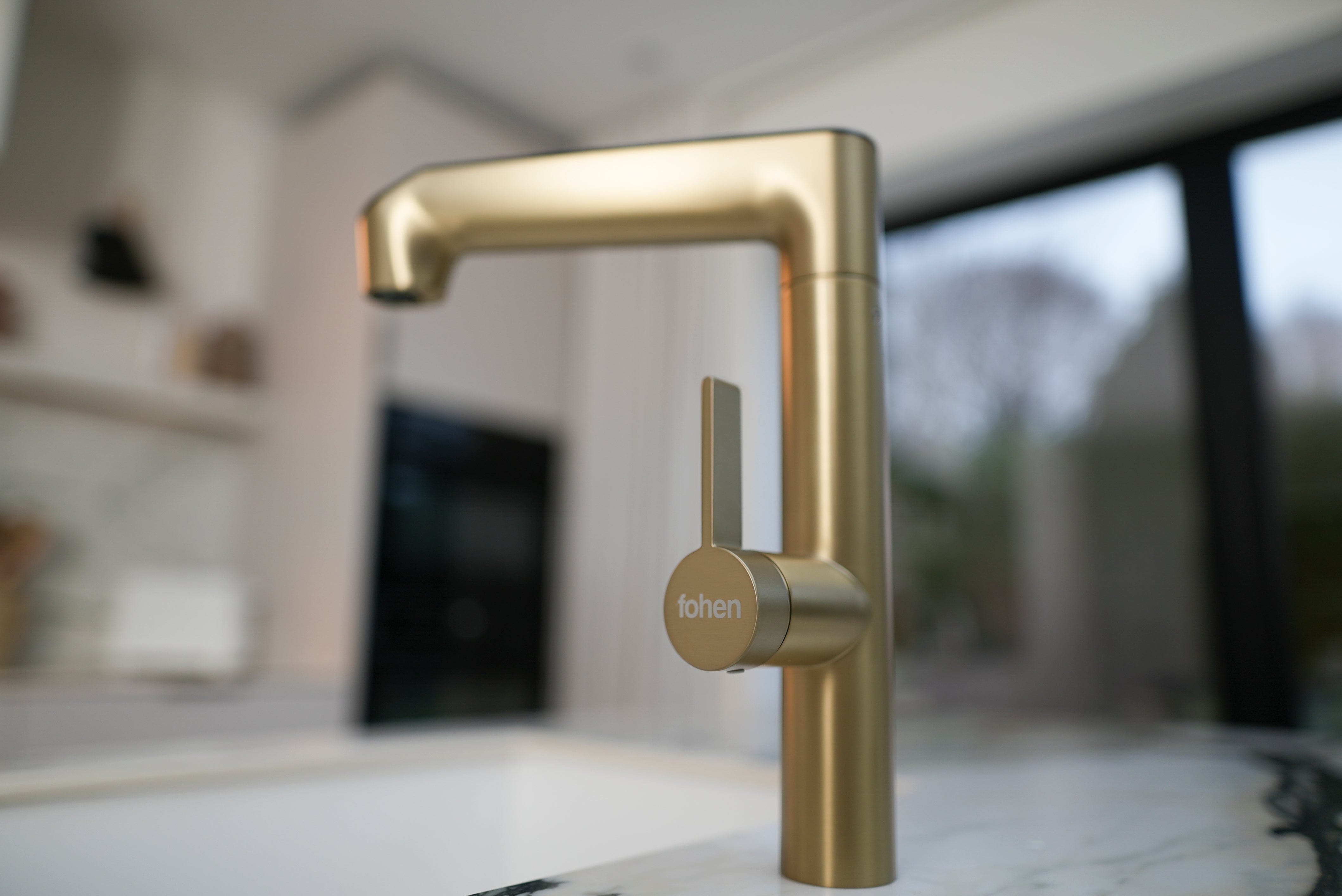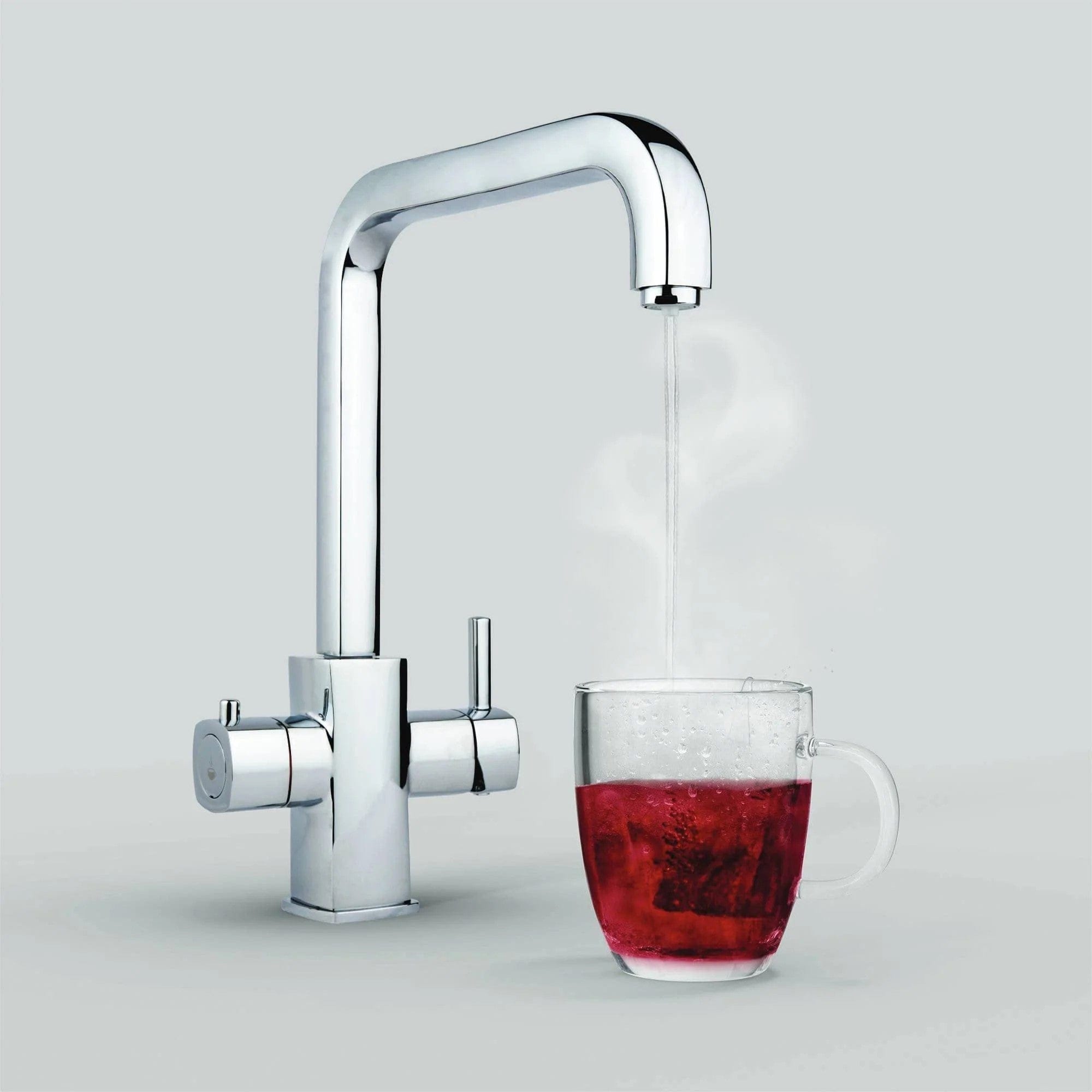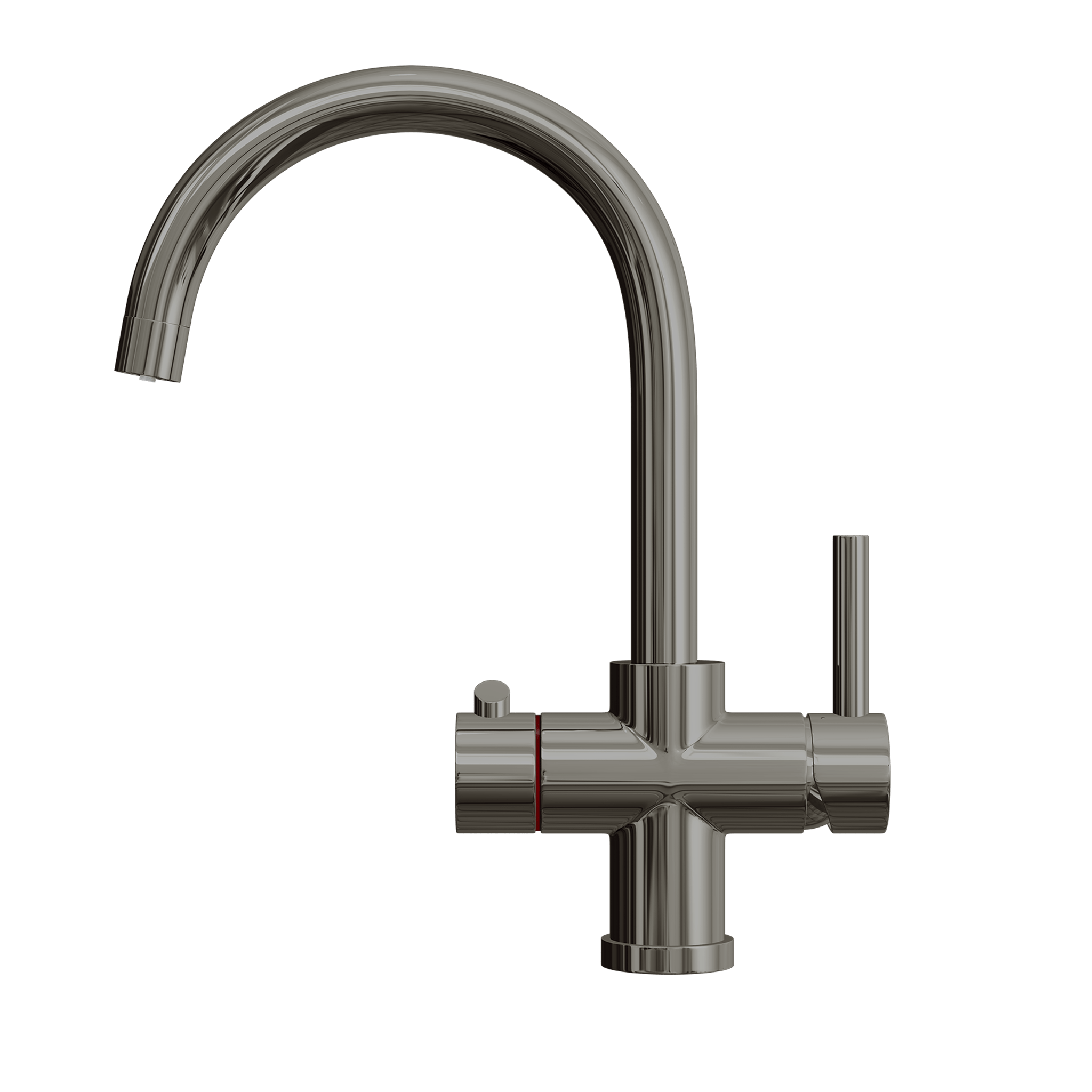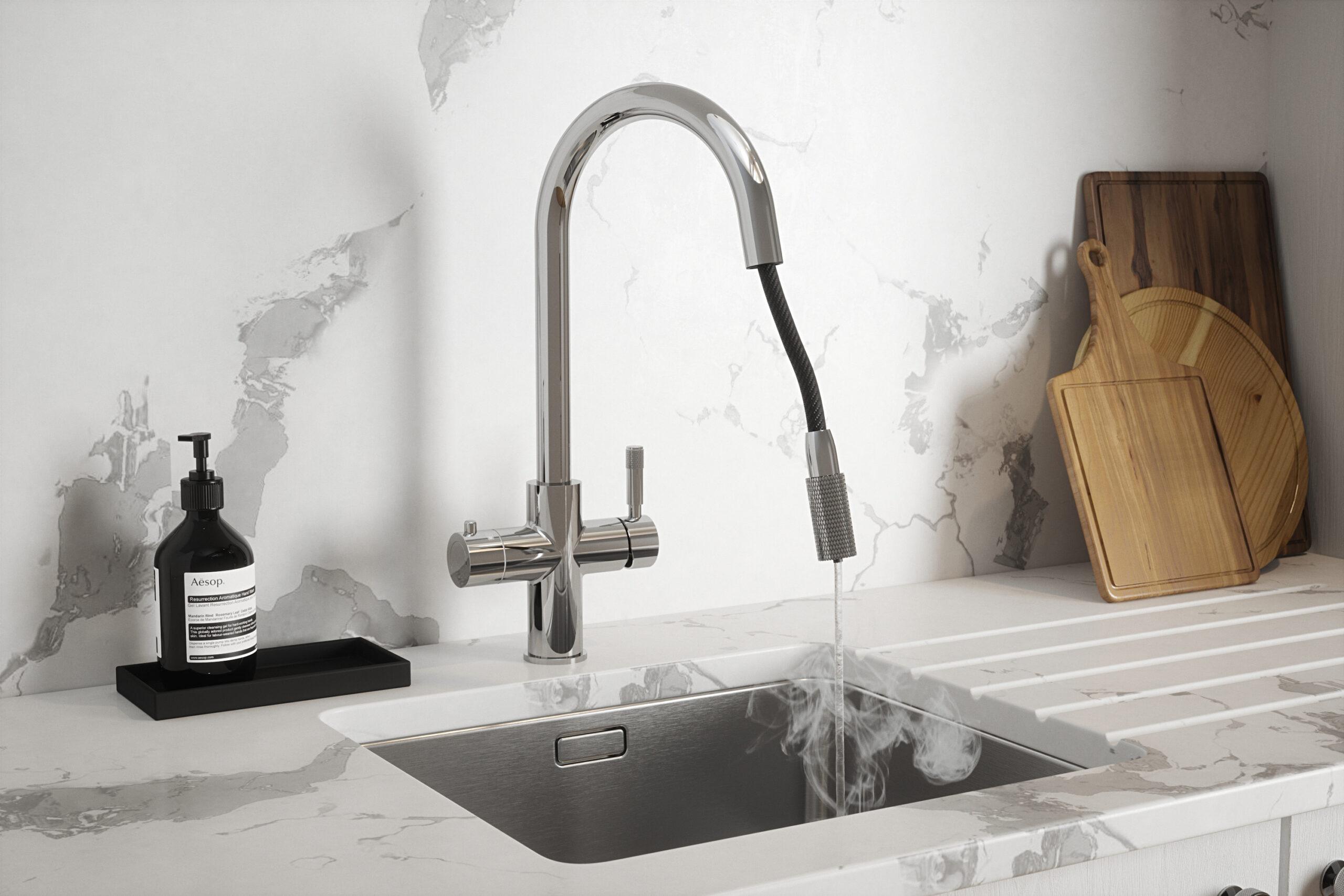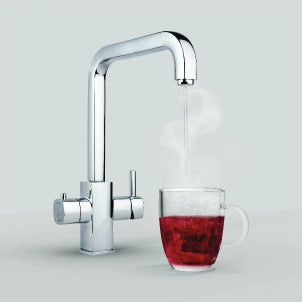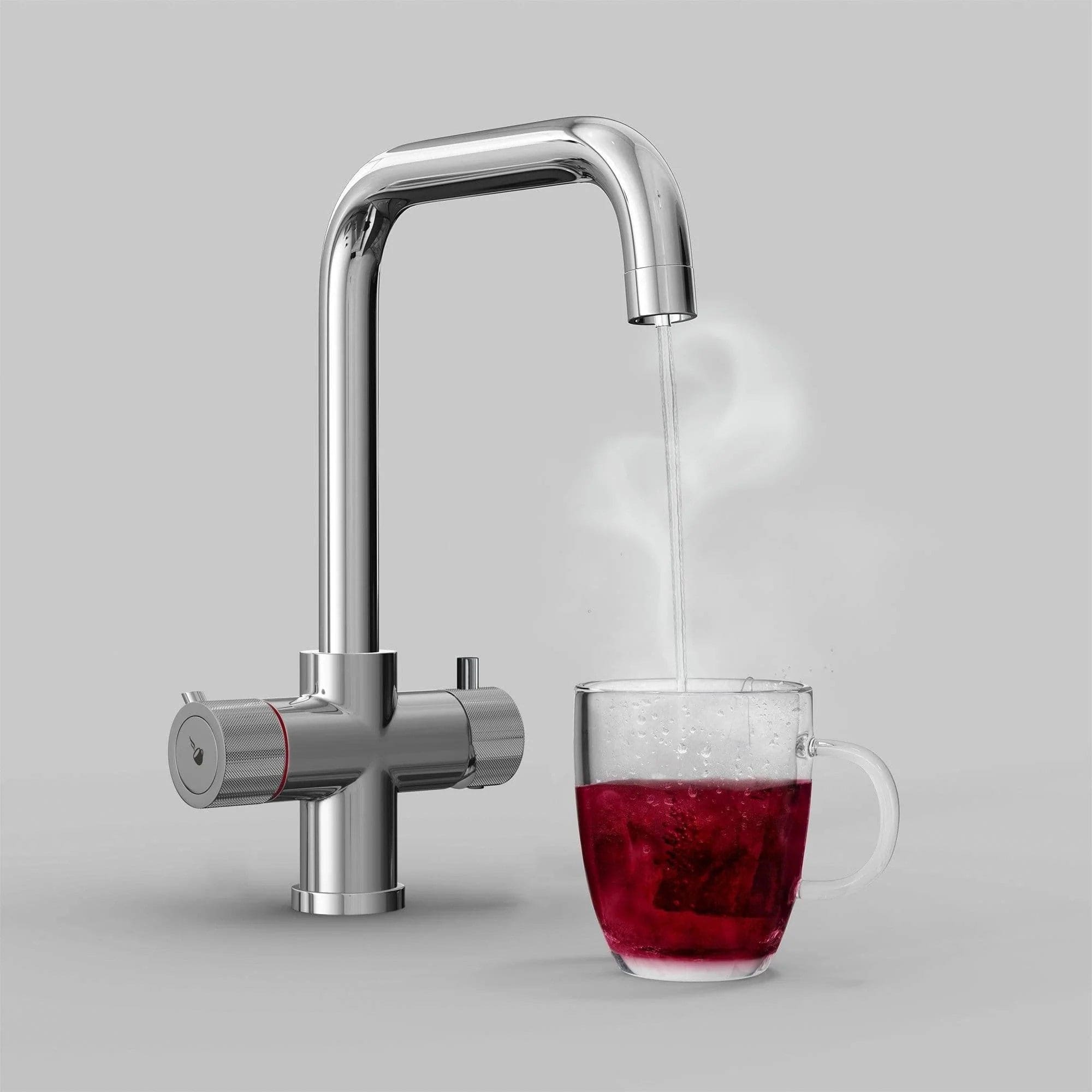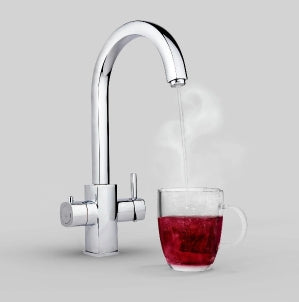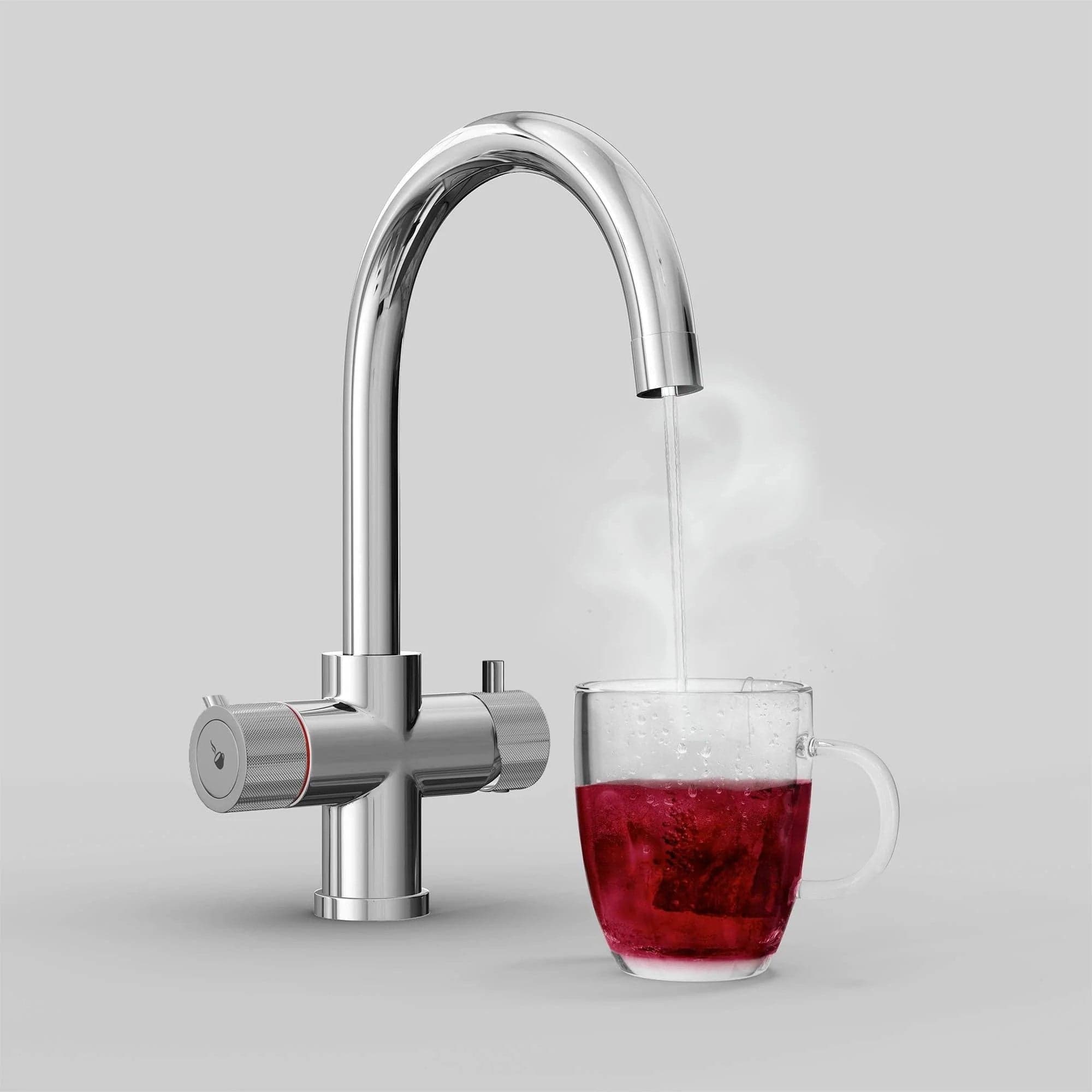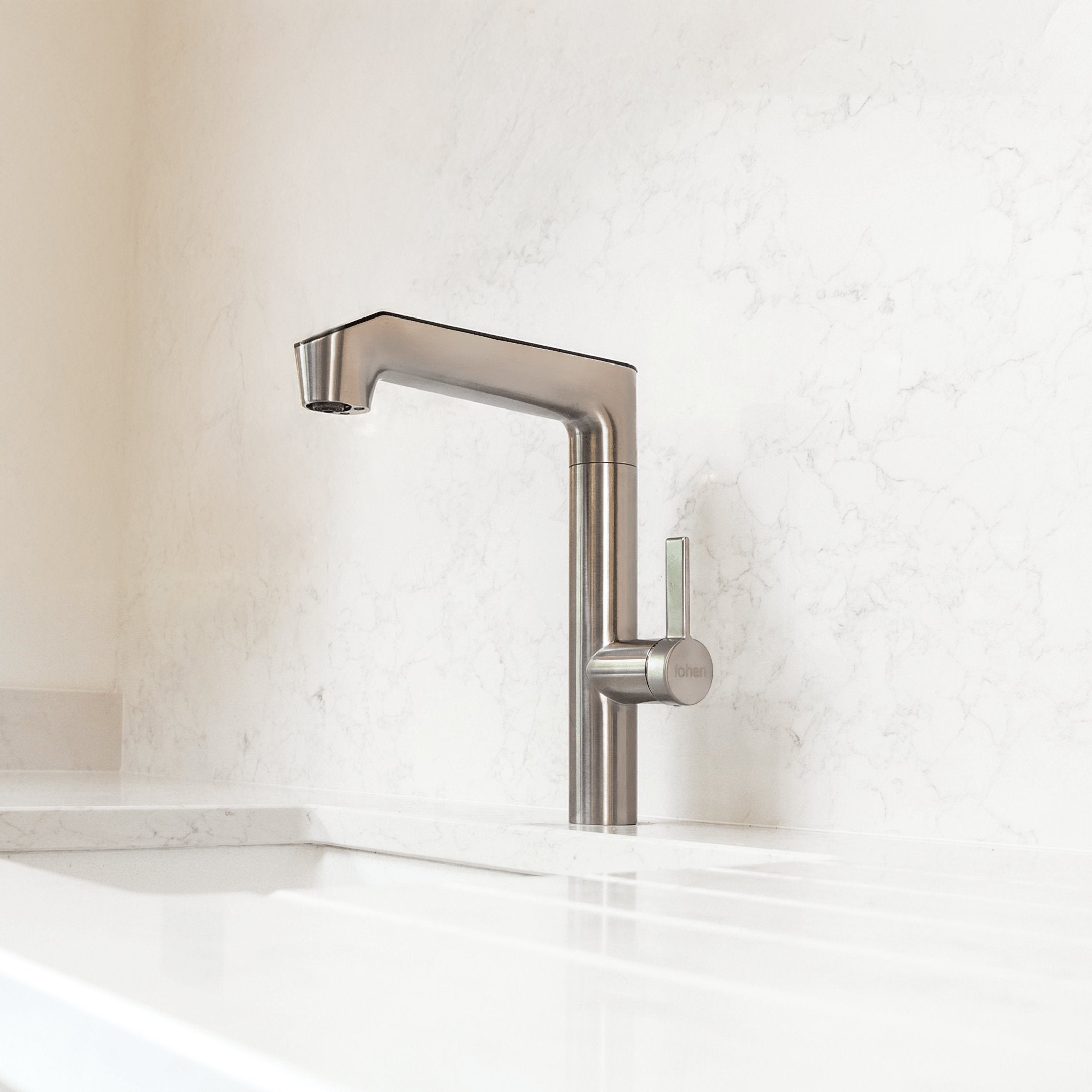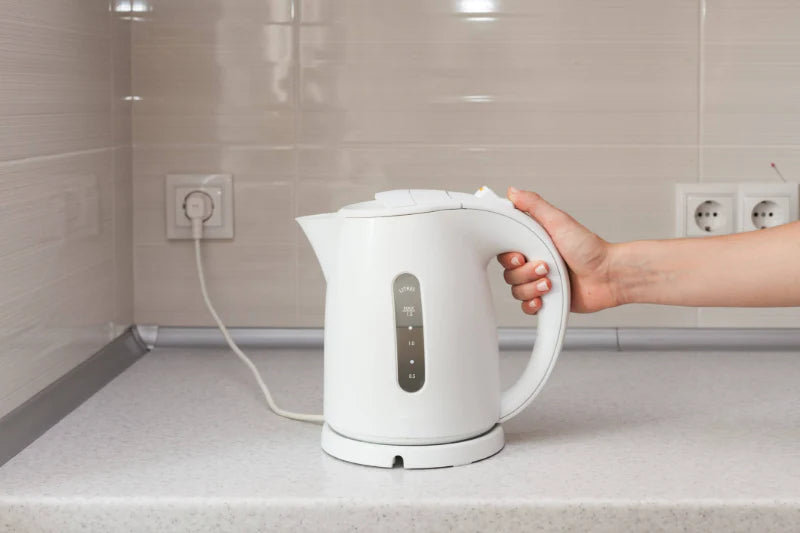A kettle is a staple in kitchens across the UK, and that familiar ‘click’ after someone asks “Shall I put the kettle on?” is a comforting sound we all know well.
The bad news? Most kettles are made of plastic, which experts are raising more and more concerns about - especially when it comes to the water we drink.
If you’ve got a plastic kettle in your kitchen and are wondering whether it’s time to make a change, you’re in the right place. Keep reading to learn about the potential impacts plastic kettles can have on your health and the environment, and some great alternatives to use instead!

What are the potential risks of plastic kettles?
Plastic kettles come with a number of risks to both us and the world around us. Here are the main ones to be aware of:
1. Microplastics
Microplastics are tiny pieces of plastic, smaller than 5 millimetres in size, that come from larger plastic items breaking down - including plastic kettles.
While scientists are still studying the long-term effects of microplastics on human health, early research has found that microplastics might contribute to issues like:
- Breathing problems, particularly for those with conditions like asthma or COPD.
- Digestive troubles, such as inflammation, discomfort, and nausea. In some cases, microplastics can even build up in the gut, potentially causing blockages or other complications.
- Hormonal imbalances from disrupting how our body produces or processes hormones, which can lead to reproductive issues, developmental challenges, and even a higher risk of certain cancers.
- Weakened immunity, making it harder for your body to fend off infections and illnesses.
- Neurological effects, as some microplastics may cross the blood-brain barrier, possibly contributing to anxiety, depression, or cognitive issues.
Boiling water in a plastic kettle can release over 10 million microplastic particles into just one litre of water. These can end up in your tea, coffee, or even your cooking when you use boiling water from the kettle. Switching to a non-plastic alternative is an easy way to help reduce you and your family’s exposure to these particles (and the planet will thank you, too!).
2. BPA
BPA (short for Bisphenol A) is a chemical used since the 1950s to make certain plastics and resins. It’s made from phenol and acetone and is commonly found in various industrial and consumer products, including many plastic kettles.
There’s been a lot of concern about BPA because it’s an endocrine disruptor, meaning it can interfere with the body’s hormone systems. Research suggests that BPA can mimic oestrogen, potentially leading to issues like:
- Challenges with physical and brain development if children are exposed during important growth stages.
- Fertility problems in both men and women, as BPA can disrupt hormone balance and affect reproductive health.
- A higher likelihood of hormone-related cancers, like breast and prostate cancer.
- Heart health concerns, including risks of high blood pressure or irregular heart rhythms. .
Like microplastics, BPA can also harm the environment. It can pollute water bodies and harm aquatic life, particularly fish, by disrupting their hormonal systems. It can also impact soil health and plant growth in high enough concentrations.
Many regions, including the UK, EU, Canada, and parts of the U.S., have taken steps to limit or ban BPA in certain products, especially those used by babies and young children like bottles and sippy cups. However, plastic kettles in the UK aren’t subject to these restrictions. This means your kettles (especially if it’s older) might be unknowingly releasing BPA into your drinks.
3. Bacteria
Plastic kettles are more likely to get scratches or cracks than alternative materials, which can trap bacteria and make thorough cleaning harder. This could mean you and your family are at risk of exposure to harmful germs. They can also absorb odours from the water or previous uses, which might affect the taste of your drinks.
What to use instead of a plastic kettle
Feeling inspired to make a switch? Here are four alternatives to plastic kettles you might want to explore:
1. Stainless steel kettle
Stainless steel kettles are sleek, stylish, and available in a wide range of colours and designs. They’re a healthier choice for you and the planet, though many still include a small plastic component for the water level indicator.
On the flipside, limescale can build up quickly and take a lot of work to remove, and the steel can develop rust if not properly maintained. They also tend to be quite noisy when boiling water.
2. Glass kettle
Glass kettles add a modern, stylish touch to any kitchen. Made from durable borosilicate glass, they can handle high temperatures and the demands of boiling water with ease.
That said, glass can still break if dropped, and many glass kettles include plastic parts like handles and lids. While they’re undeniably cool, they might not be the most practical choice for everyone.
3. Stovetop Kettle
Stovetop kettles are a versatile choice, working on all types of stoves and even campfires. They often have a larger capacity than most electric kettles, allowing you to boil more water at once.
On the downside, they can take up to three times longer to boil, so you might have to wait longer for your tea or coffee. They’re also heavier and can be harder to handle. Many stovetop kettles also have less durable handles that can loosen over time.
4. Instant boiling water tap
Instant boiling water taps are the ultimate upgrade. Built from durable, high-quality materials like brass and stainless steel (not plastic), they give you boiling water instantly - no waiting, no microplastics, and no BPA worries. Many models even include chilled and filtered water options for extra convenience!
The quality of water you get depends on the model, so it's important to choose wisely. For example, Fohen’s boiling water taps feature a dual-action resin and carbon limescale filter that removes nearly all limescale and chemical impurities from your tap water, improving its taste and aroma while making sure it's free from anything that could impact your health. You’ll get fresh, great-tasting water with the peace of mind that you’re keeping your family safe from potential water impurities!
Explore our instantly boiling water taps
Ready to say goodbye to your old plastic kettle and give your kitchen a stylish upgrade? Check out our full range of instant boiling water taps and find your perfect match!

